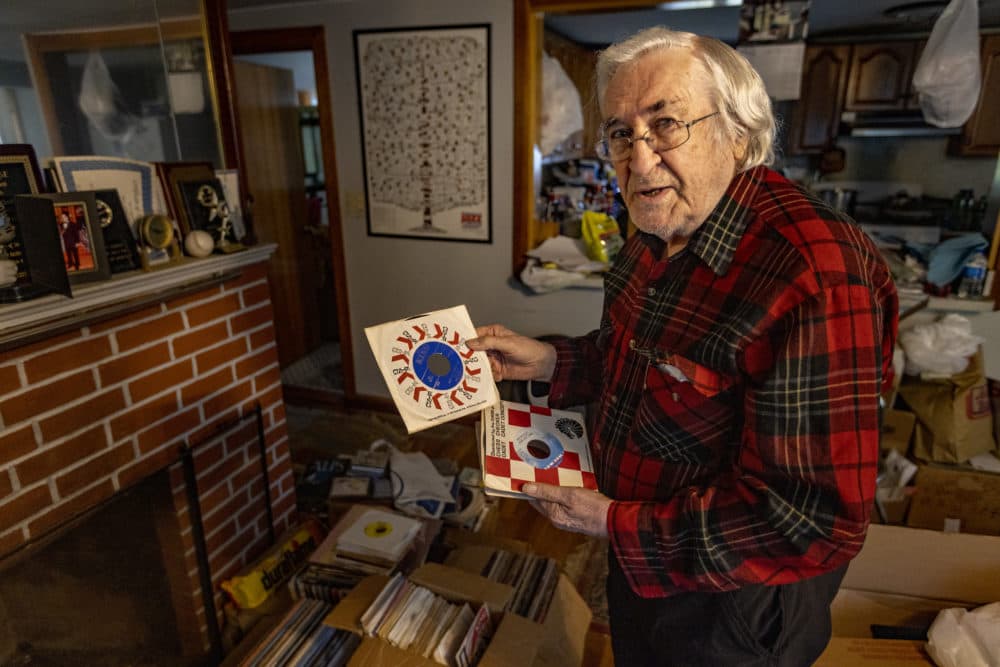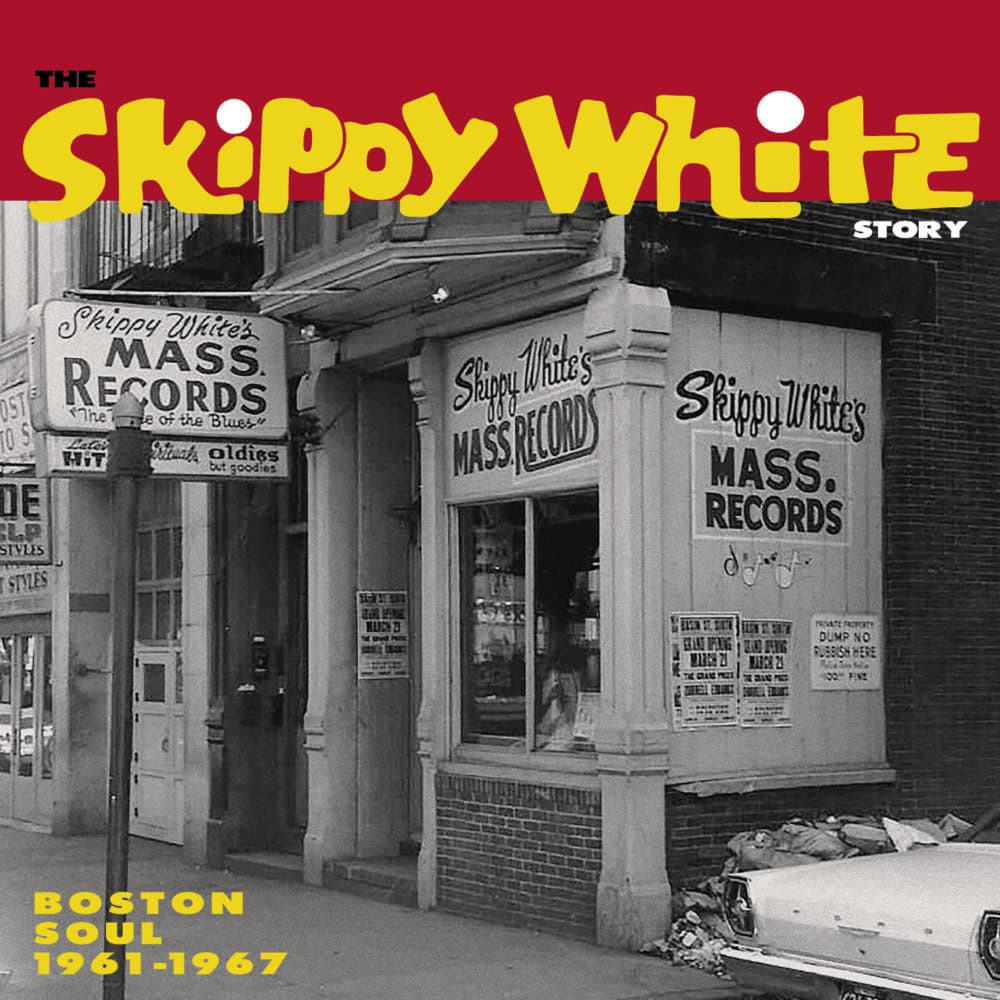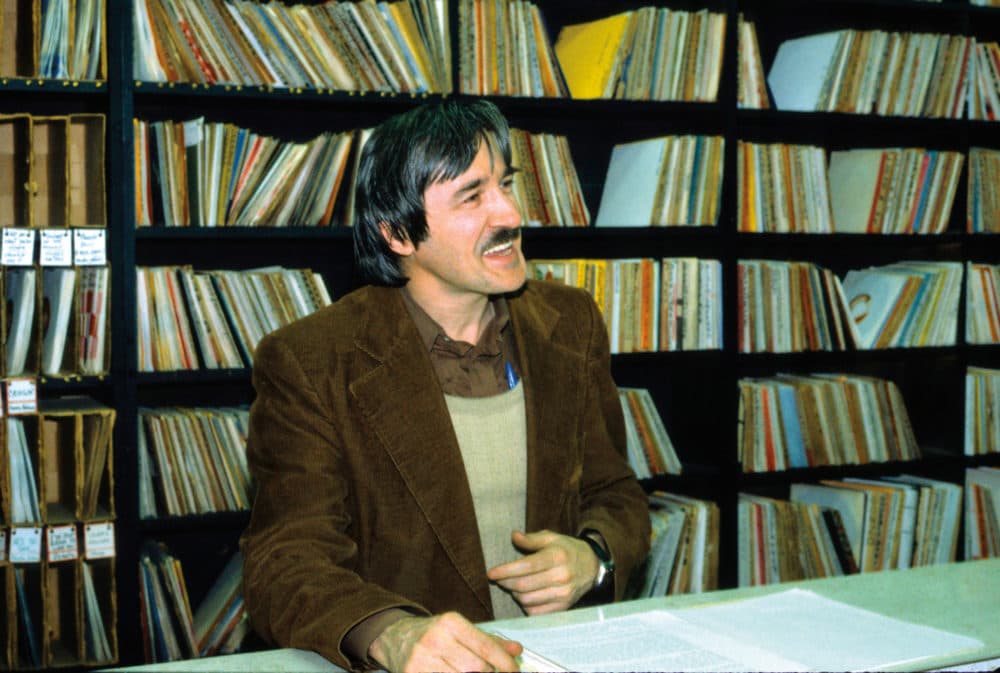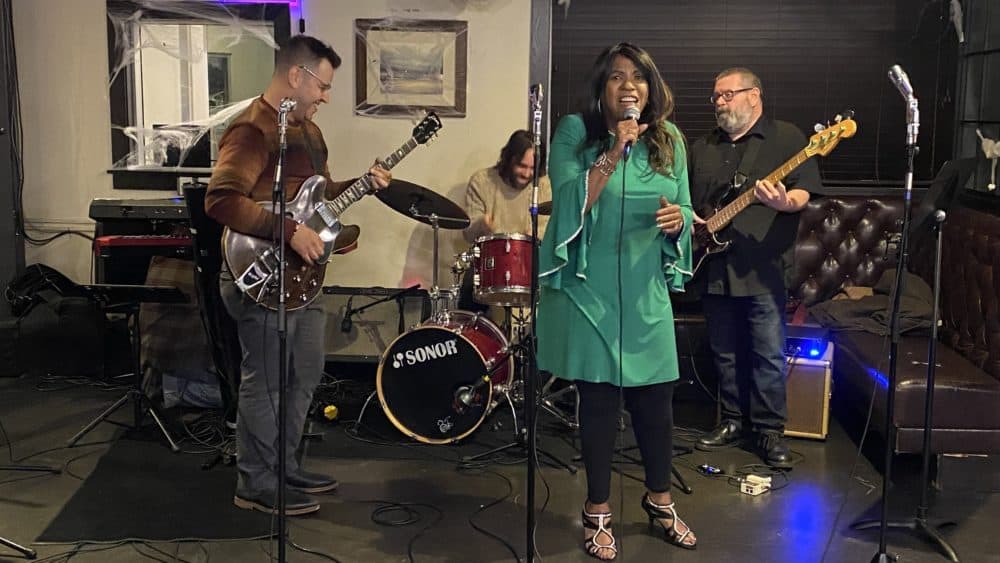Advertisement
Lost-then-found vintage 45s tell story of record store legend Skippy White's role in Boston soul music
ResumeLong before streaming service algorithms fed our appetites for new sounds, music lovers relied on radio DJs and record shopkeepers like Skippy White.
“There was a saying that if you came into the store, and you wanted a record but you didn't know the name of it, all you had to do was just hum it,” the now 86-year-old said with a laugh.
White's encyclopedic knowledge of rhythm and blues is legendary. Like a professor, he shared it with customers for years at four beloved Boston-area record shops.
White opened his first on Washington Street in 1961 and Mass Records: The Home of the Blues became a mecca. It was the place where people could find the latest R&B, gospel, doo-wop and soul.

But White lifted the needle on his six-decade brick-and-mortar career in 2020 and moved his massive inventory to a warehouse. “Even that wasn't big enough to hold everything,” he recalled. “So when I finally closed the last store and ended that chapter in my history, I had to bring a lot of records home.”
Boxes of musty LPs and 45s fill White's house in Natick. But there's a part of his storied career in vinyl few people know about. Musician Eli “Paperboy” Reed uncovered it in the mid-2000s while clearing out the basement at White's shuttered Central Square location.
“It was full of water-damaged records,” Reed said, “And that was sort of my clue that there was more to the story about soul music in Boston than I was aware of.”
The 39-year-old knew White brought rarely-heard music by Black musicians to the airwaves as a DJ on WILD 1090-AM, and that he convinced major soul artists like Otis Redding to play Boston shows in the 1960s. What the younger vinyl collector didn't know was that White also recorded local musicians.
“A lot of these groups would come to me — especially when I put out Sammy and the Del-Lards,” White said of the harmonic doo-wop act. “They figured Skippy White's the one to go to."
Some artists even auditioned for White at his Mass. Ave. shop. He remembers when Alvin Hankerson heard twangy blues coming through an outdoor speaker and went inside. The musician told White he sang like that too, and had written some original material. Then Hankerson ran home to grab his guitar and came back to perform a few songs. Impressed, White even came up with a novel artist name for Hankerson. One of the musician's thumbs was missing, and he strummed his guitar with the boney stub that remained. So White suggested he go by Guitar Nubbit, and it stuck.

Now, songs by Guitar Nubbit and Sammy and the Del-Lards join more than a dozen rediscovered tunes on a new compilation that celebrates this unsung era called “The Skippy White Story: Boston Soul 1961-1967.”
“I never thought that this would happen, never dreamed about it, because I thought that if we're ever going to have a compilation of some of the releases I had on 45s, that I would have to put it out myself,” White said.
With help from other Skippy White fans, Reed set out to collect and learn more about this lost history. The Brookline native hunted for forgotten 45s, and even found one-off acetate tapes that were cut at sessions but never became records. “Treason” by The Precisions is one of them. Reed couldn't believe it existed.
“You just don't expect to find really high-quality material that has sat in the can — or, in this case, in a box in a basement — for so many years,” Reed said. “You have this group, The Precisions, who we only know one of the members' names. These records are great. They deserve a second life.”
A revival of re-releases from other vintage soul scenes in cities like Seattle, Washington and Madison, Wisconsin really lit Reed's fire. “I was like, 'man, if they can put out records in these kinds of far-flung places there should be a compilation of soul records and gospel records from Boston.'”
Reed's label Yep Roc Records got on board to share the story of Boston soul, R&B and gospel with a wider audience. The musician said not being able to tour during the pandemic gave him and co-producer Noah Schaffer (a WBUR contributor) time to clear song rights, do their research and thoughtfully package the compilation. Its in-depth liner notes, archival images and rare recordings document how White put Boston soul on the map.

“You got this guy who grew up with French Canadian parents listening to country music in Waltham, and then falls in love with Black American music and makes it his life's passion," he said.
Reed was especially psyched to include an unconventional gospel tune by the Crayton Family Singers. “Master on High” features an explosive female voice praying for the Lord's love, and it burst out of some surprisingly young pipes.
“I mean, Joyce is 11-years-old when she sang that song,” Reed said.
Joyce Crayton Weston also wrote the lyrics. Now 68, the Stoughton resident remembers going into the studio as a kid to record “Master on High” with White and her father, Rev. Huston Crayton. The two men were close friends and both had radio shows. They co-promoted big gospel shows in Boston but always made sure to highlight local bands on the bill — including the Crayton Family Singers.
Crayton Weston is grateful White captured her parents, sister and brother's music through his gospel label, Silver Cross. “It's been many years. You know, both of my parents are gone. I miss them,” she said. “But their legacy is still here. The Crayton Singers, that's what they formed.”
Still, Crayton Weston was surprised to learn about the resurrection of “Master on High.” Even though it was one of her favorites, she said, "I didn't know it would get that sort of attention.”

Some of the songs White released on his four record labels got radio play beyond Boston, but none of them made it big. “There isn't a hit on the whole compilation, but it's great music,” he said.
A standout is the celebratory, two-part "Skippy White Theme” sung by Junior Washington and arranged by another big player in Boston's R&B scene — acclaimed Berklee graduate, drummer and producer Herschel Dwellingham.
In all, White thinks he pressed maybe 3,000 records back in the day, but he knows for sure that he never made much money from the musicians’ 45s. “That's not what I was there for,” White said. “I was there to help them expose their talent — and that was it.”
Skippy White's real name is Fred LeBlanc, but that's another story. He continues to sell vinyl from his historic trove online, and you can still hear "the professor" sharing his favorite genres on two weekend radio shows. The Gospel Train and The Time Tunnel are broadcast out of Dedham on the independent station Urban Heat 98.1-FM.
This segment aired on November 11, 2022.
